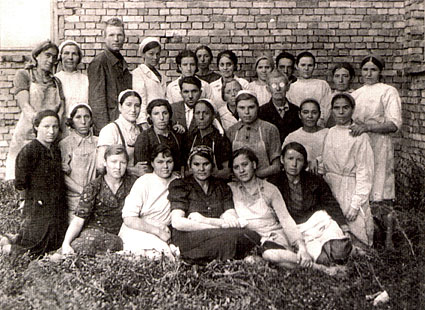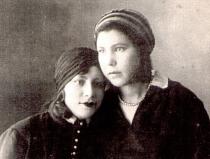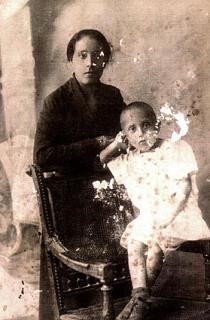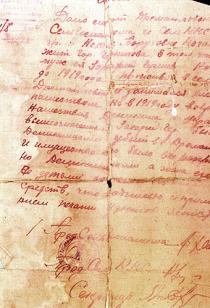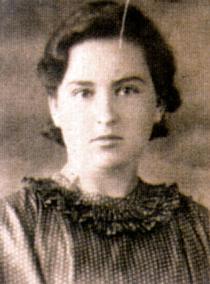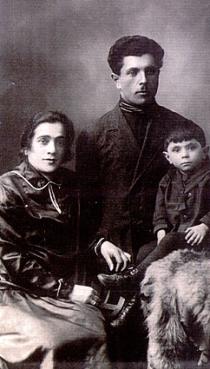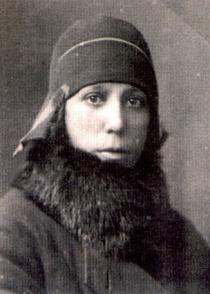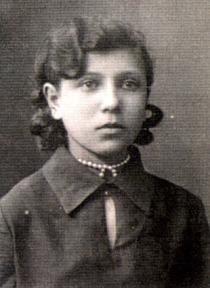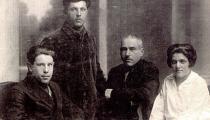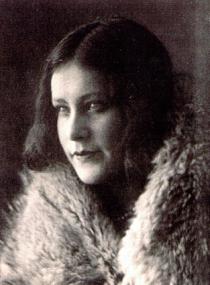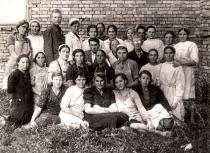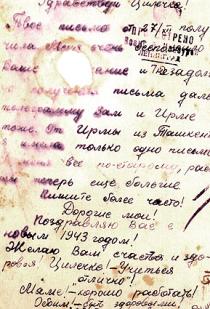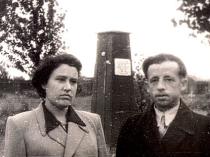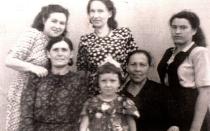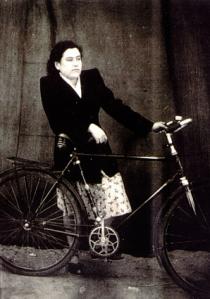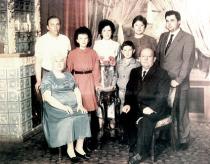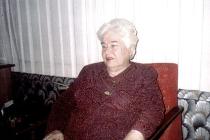This is a photograph of the dried bread department staff at the Orsk bakery. June 1942. My mother Nehama Rozhavskaya is the fourth from the right in the second row wearing a white kerchief. The second from the left in this same row is Bodana and I and the one from the right in the upper row is uncle Ziama's wife Lisa Kaplan.
In June 1941 I finished the third grade and my mother was going to send me to my father's sisters in Gorodnya for the summer. We were supposed to depart in the end of June, but on 22 June Molotov spoke on the radio and we got to know that the Great Patriotic War began. None of my family seemed to know or even assume that there was a possibility of the war. My mother didn’t want to stay in Chernigov in any circumstances. Some sixth sense, her instinct of self-preservation was forcing her to evacuation and she actually raised the rest of the family. We loaded our simple luggage and headed to Novgorod-Severskiy. My grandmother, Sima with her two children and Bodana and Fania were in the wagon with us. Sarrah and Alik, Zelda and Lisa with their children were on another wagon. In Novgorod-Severskiy we boarded a boat with thousands of other refugees. It brought us to a railway station. The boat was stuffed with refugees. At the railway station we boarded a freight train and departed. We managed to board one railcar. We were heading to the Urals. The train moved slowly letting military and sanitary trains pass. At bigger stations we jumped off with pots where they gave us soup or cooked cereals or just boiling water. On the road my father either fell ill or ate something tainted, or it was acute condition of his chronic disease. At Mukhnatin station of Tambov region, 2000 km from home my father, mother and I got off the train. My father was sent to a hospital immediately and my mother rented a room from a Russian old man. My mother went to the hospital every day and cried at nights. On 28 October 1941 my father died. It was the first death of my dear one. After my father’s funeral I had a high fever and probably this helped my mother to hold on: she had to bring me to recovery. As soon as I recovered we left for Orsk where our family was.
We arrived at Orsk, a small town in Chkalovsk (present Orenburg) region. There was a fortress in the town where a harrison deployed. Local population resided in private houses for the most part. Our family lived on the outskirts near a power plant and bakery factory. This was a district of employees of these enterprises. All of our relatives rented a small room in a private house. We slept on the floor side by side. My mother and I were the last to arrive and the only sport left for us was near the door. We slept with our clothes on and wrapped in everything we could find: blankets, coats or fur coats. But we still woke up in the morning covered with hoar frost. It was end of November and when we came it was severe winter in the Urals already. My mother, her sisters and aunt Lisa went to work at the bakery. They worked in the dried bread shop drying bread for the front. My mother always over fulfilled the standard quantity 20-25%. Everybody worked for the front, for the Victory! For her outstanding performance my mother received a package of dried bread that did help us to survive. It didn't matter that there was pain in my mother's fingers and they were bleeding, she continued to work hard. This was my mother's first job and in evacuation in 1942 she became a trade union member. This is the only document we have confirming that we were in evacuation.
I went to the 4th form of a local school. Although I was almost 3 months late I caught up with other children soon and received all excellent marks. There were far too many children in classes due to many children in evacuation, including Jewish children. We had no problems associated with our nationality and in general, we never gave this subject a thought. We were all victims: some children had already received death certificates, some had their fathers missing and others were still in action. I was also an orphan. Teachers had particularly warm attitude toward us, orphaned children of the war. It was a hungry life, particularly for those who were used to high calorie meat food. As for me, what we received at school was quite sufficient. After classes my friends and I went to the hospital. This was a holy mission for us to support the wounded. We helped nurses, took out patients' bed pans, changed bed sheets and gave food to the patients. But the most important thing was that seeing us brought a warm spark into their eyes and they smiled. I read them poems by Pushkin, Lermontov. Occasionally we made them a concert in the biggest ward. So I think I made my contribution into the common cause of victory.
We were in evacuation until Chernigov was liberated in late 1943. My mother applied for obtaining permits for reevacuation, but we left home before we had any documents issued to us.
